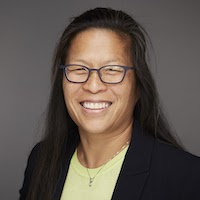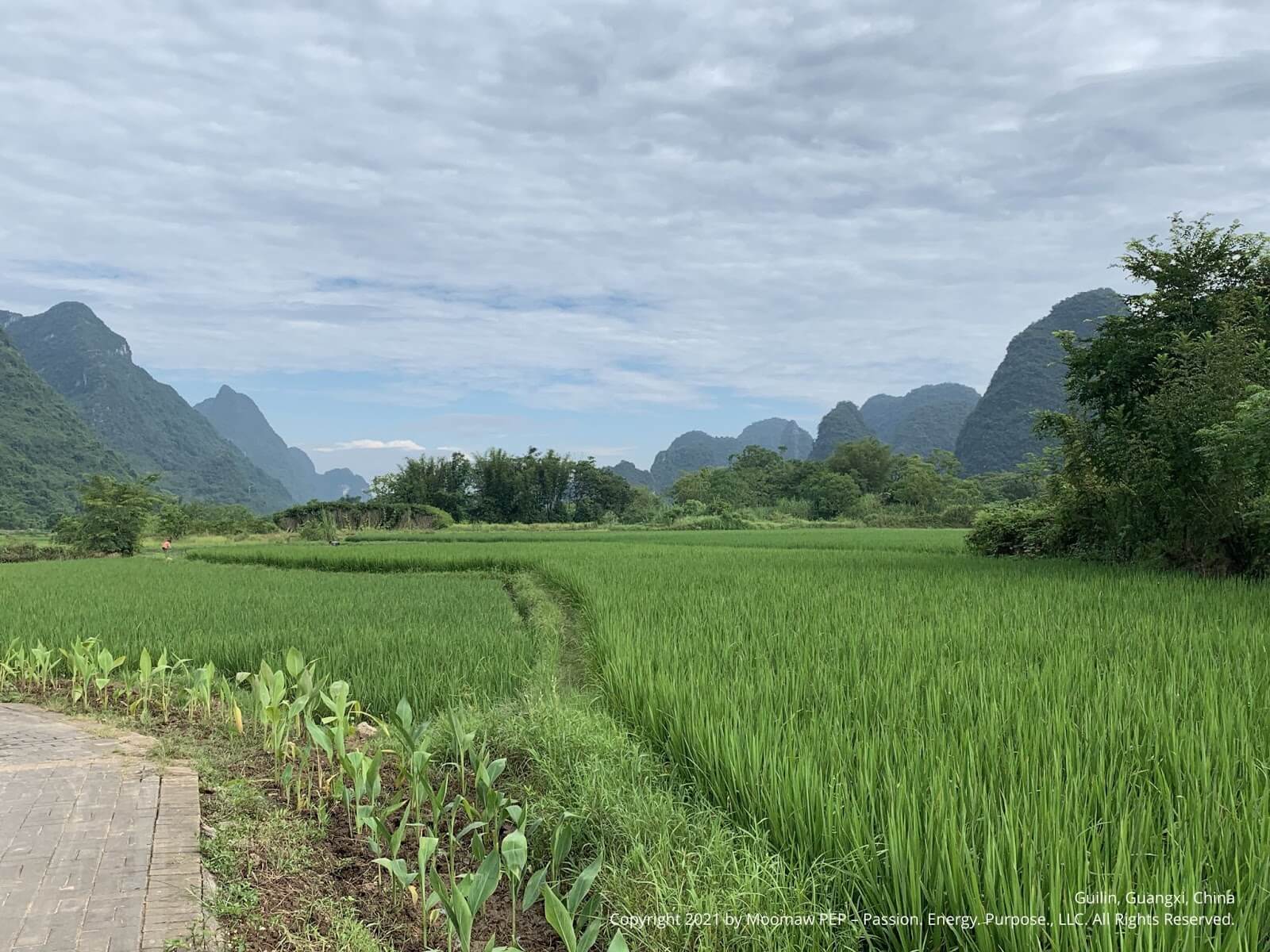On February 12, 2021, the Lunar New Year, three Asian stores amidst a group of six on a single block in our town were vandalized. This was followed by the steady attacks on older Asian people in San Francisco and New York City and the horrific killings of six Asian women at three different massage parlors in Atlanta. As an Asian American, I am deemed a member of the model minority by the dominant culture. Highly educated, privileged, one of the highest earning minorities in the US, we are represented in organizations yet underrepresented in leadership positions and in 2018, income inequality was rising most rapidly amongst Asians. And yet, although models to some, we are vulnerable on the streets and in our workplaces.
As I learned more about racial equity, assimilation was revealed to be both a tool for personal safety and also a barrier to my learning. As an Asian American young person, being ostracized, bullied, and excluded was too painful to confront so I adapted and assimilated to whiteness as a safety strategy. Now, I experience assimilation, ironically, as not only ineffective in protecting me from being targeted for violence, but also as a barrier to my authentic self. In order to be in the work of racial equity, I needed to develop a healthy racial identity and confront my habits around assimilating. It was here that I tumbled into a new learning space that challenged all of my heart to make meaning and sense of myself while also noticing the increasingly violent attacks on communities of color.
Asian American Pacific Islander (AAPI) is a diaspora – Southeast, South, East, Pacific Islander, and more. Our experiences are not a monolith – each of us have unique and individual experiences in our countries of origin, in the United States, and in our ancestral history. Our people come from countries that have been colonized and suffered from the cultural restrictions of colonialism. Some arrived as immigrants seeking refuge, an education, a dream of a better life for our families. Some are descendants of railroad workers or descendants of laborers brought here to fulfill high demand for cheap labor. These characteristics are also true for white people – who also arrived in the US, some generations ago, for a multitude of reasons and who also carry complex histories. One of the differences between us is that AAPI and other races have been racialized – made aware of our racial difference and then placed into a racial hierarchy. Resmaa Menakem refers to this as white body supremacy – where the white body is the supreme standard by which all bodies of humanity shall be measured structurally and philosophically.
Beyond the Asian community, it became impossible to ignore the evidence of assault on our Black communities. The murders of Trayvon Martin, young Tamir Rice on a playground, and Sandra Bland after a routine traffic stop were horrible reminders. The investigation by the Department of Justice in 2015 of “racial bias and stereotyping about African Americans” revealed systemic racism embedded into the institutional structure of “certain Ferguson police and municipal court officials.” These revelations juxtaposed with the amplification of White Supremacy by political leaders and COVID’s devastation of Black and Brown communities through economic inequities and racial health disparities, created an inflection point that moved me to take a stand for racial equity.
For the past 25 years, I’ve engaged in systems change work focused on a greater good for everyone. From activism efforts around transforming an idea into reality in a 20,000 community to leading the Conscious Capitalism of Central Maryland chapter, I was driven to demonstrate that we can collectively design a better world through community and business that works for everyone. Yet, I did that without acknowledging how my race impacted my work. If it’s true that organizations can only grow to the capacity of their leadership, then it became crucial for me to explore how my race impacts me.
As I began to discover and explore a healthy racial identity, I looked at my own conditioned tendencies and wondered if they were cultural behaviors. I assessed my leadership challenges and wondered whether they were tethers to my social shaping as a Chinese girl being brought up in the US or an epigenetic shift that occurred generations ago and was present in my physical body. I revisited old and painful stories about my racial identity through new lenses – bringing compassion for my young self and noticing the brilliant use of assimilation as a safety strategy. My courage emerged in me as an ancestral gift, cultivated through generations of movement and change in my family which resulted in first cousins on five different continents. While the discovery of a healthy racial identity feels elusive, what has emerged so far has provided me access to a more authentic self, deepened my presence, and rooted my confidence.
All the suffering throughout communities of color became too big for me to hold; and I couldn’t turn away either. The attacks on the Black community, the suffering of both the Black and Brown communities during COVID, the invisibility of Indigenous people, and the attacks on the AAPI community were steady and unrelenting. As my authentic self emerged and my presence deepened, I began to wonder and imagine what I could do. Where is the resistance to change in the system and what solution might I create that would have a ripple effect? I reflected on my own lived experience – as a community catalyst that began with an idea between two people, grew to include four people, and evolved into a community solution that impacted tens of thousands. I then leaned on my understanding around leadership and culture, the potential for an inside out approach, and then collaborated with Danielle Marshall of Culture Principles, a racial equity, diversity and inclusion strategist. Her leadership around systemic change work that promotes equity and inclusion aligned with my own and her leadership experience in non-profits and strengthening collaboration with stakeholders broadened my perspective. Together, we co-created the Reimagining Racial Equity workshop, an 8-week intensive that is multi-dimensional, experiential, and transformational while also being profoundly practical. Our inside out approach leverages the leader as a key component in the organizational transformation towards racial equity and spirals outwards. Participants both learn and unlearn patterns in themselves, and then practice new ways of building intentional community. They share current challenges in their organization, explore new approaches, and discover new solutions in the community, as they shift towards building and sustaining racial equity. One participant recently shared, “this workshop truly changed my entire concept of leadership. I will never see the world the same way.”

Wendy and Danielle invite you to join them to co-create racial equity in all the spaces we live and work:
- Link to: Reimagining Racial Equity Workshop
- Learn more about this workshop – a video [7.5 mins]
- Testimonial – a video [2 mins]
- Visit the Conscious Collaboratory
Connect with Wendy at: wendy@wendymoomaw.com or on LinkedIn at https://www.linkedin.com/in/wendymoomaw






Thank you, Wendy, for this article. Such vulnerability, courage and wisdom.
Thanks for reading, Dan. We’re inviting organizations to transform themselves through their reimagining racial equity and it all begins with us. Each of us.
Thank you for reading, Dan. May we all explore ourselves more fully and with greater compassion which creates spaciousness for us all to move with more grace and authenticity. Go with courage. Wendy
Wendy, yours is an awesome and awe-inspiring journey. The way you have turned your exploration of your own inner experience outward into action to help others do the same, is inspiring. Thank you!
Wendy, I read this article with a learner’s mind. Thank you for helping me feel more deeply into my white privilege and the suffering of others. I honor the deep work you have described here as well as the courage to so vulnerably and openly share. Thank you for your leadership and your wisdom. With deep respect, Bob Anderson.
Thank you, Wendy, for sharing your challenges, heartfelt journey, and determination to create a way to impact and transform the racial injustice we are seeing every day. You are in the right place at the right time to lead the charge toward change!
Your example to coaches and leaders everywhere is inspiring. As a participant in the first cohort of Reimagining Racial Equity, I am so grateful for your journey, work and stance. It has transformed me. One conversation at a time, it is changing those I work and play with.
Wendy, thank you for sharing your lived experience and learning. The compassion and action combined with taking perspective will bring meaningful impactful change that is needed. Respect, love and appreciation for you and your journey amd what you can teach all of us. Bill Adams
Wow – thank you for that powerful reflection, Bill. The wrestling in myself and the move to discovery and exploration is present in the system too. I hope many will join me on this journey, starting now. May we all move with more ease and more access for all. Go with courage. Wendy